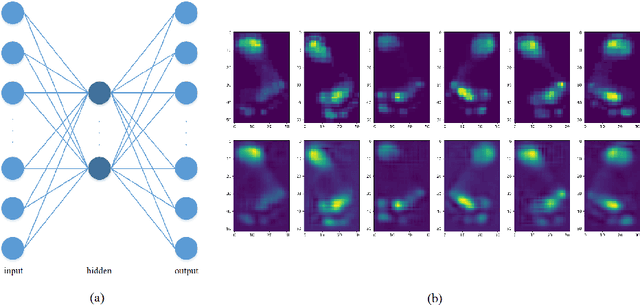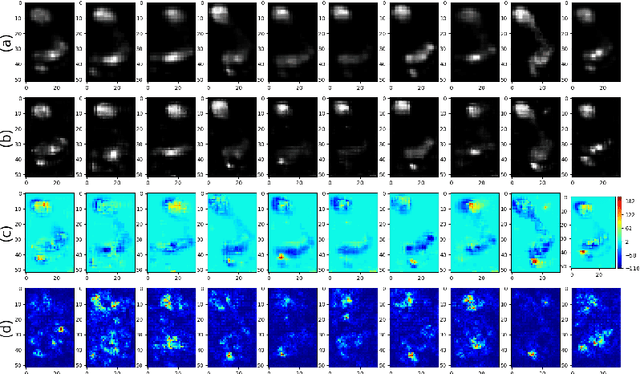N2RPP: An Adversarial Network to Rebuild Plantar Pressure for ACLD Patients
Paper and Code
May 08, 2018



Foot is a vital part of human, and lots of valuable information is embedded. Plantar pressure is one of which contains this information and it describes human walking features. It is proved that once one has trouble with lower limb, the distribution of plantar pressure will change to some degree. Plantar pressure can be converted into images according to some simple standards. In this paper, we take full advantage of these plantar pressure images for medical usage. We present N2RPP, a generative adversarial network (GAN) based method to rebuild plantar pressure images of anterior cruciate ligament deficiency (ACLD) patients from low dimension features, which are extracted from an autoencoder. Through the result of experiments, the extracted features are a useful representation to describe and rebuild plantar pressure images. According to N2RPP's results, we find out that there are several noteworthy differences between normal people and patients. This can provide doctors a rough direction of adjusting plantar pressure to a better distribution to reduce patients' sore and pain during the rehabilitation treatment for ACLD.
 Add to Chrome
Add to Chrome Add to Firefox
Add to Firefox Add to Edge
Add to Edge